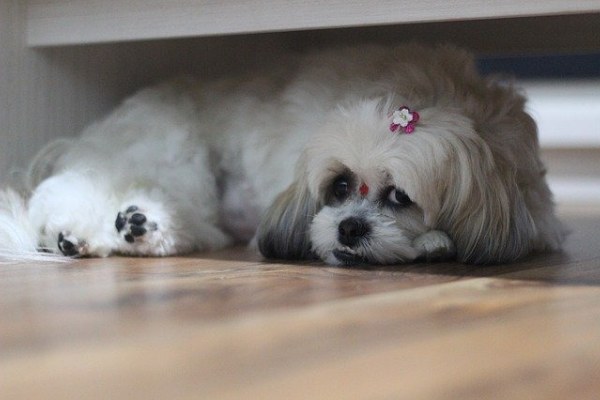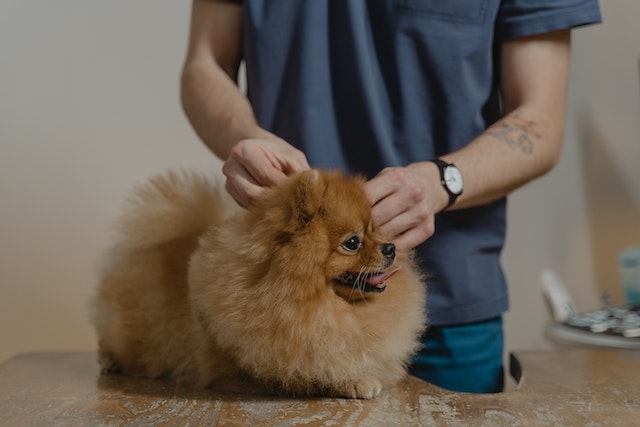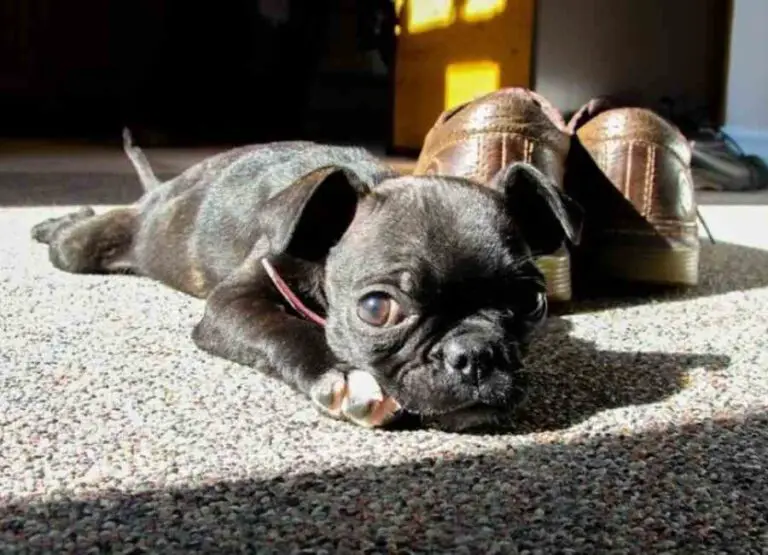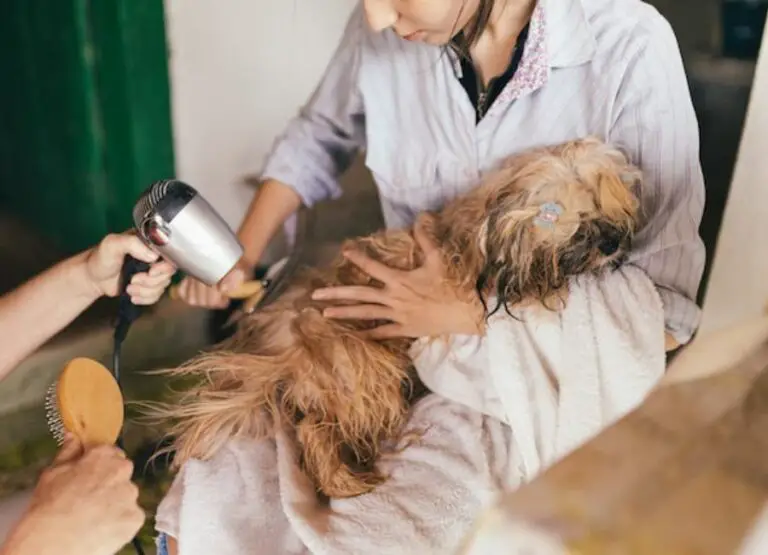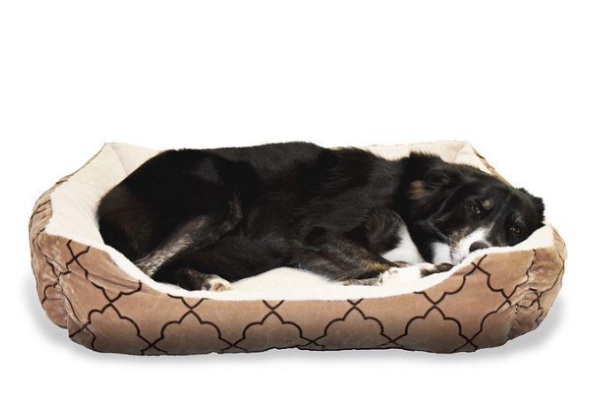13 Common Bichon Frise Old Age Problems & Tips
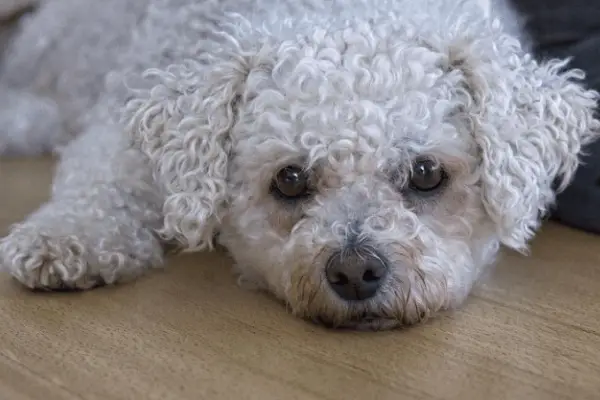
Bichon Frise old age problems are an issue for Bichon Frise owners and that is exactly what I will be addressing in this post.
When your Bichon gets older, she may develop several health issues that you should be conscious of.
Not just health challenges I will also outline some other Bichon Frise old age problems you should know, so keep reading.
Bichon Frise Old Age Problems
Reduction in mobility, diabetes, pancreatitis, kidney disease, reduction in appetite, arthritis, loss of interest in favorite activities, and increased shedding on sleeping spots are all Bichon Frise old age problems.
Given how many health issues in Bichons begin around the age of ten, you may have a few years of battle ahead of you with a senior Bichon.
Here are some of the most common Bichon Frise old age problems you should know:
1. Diabetes
Diabetes is one of the common Bichon Frise old age problems found among owners.
The disorder manifests when the pancreas’ endocrine glands cease producing insulin or the body does not respond to the insulin generated.
Dogs are unable to manage their blood sugar levels in this situation since insulin is responsible for breaking down sugars in the blood and controlling the sugar level.
In such cases, insulin shots are administered, and if the dog does not receive the treatment at regular intervals, he or she may die.
Sudden weight loss, excessive urine, increased hunger, and blurred eyesight is among the symptoms of diabetes in Bichon Frise.
2. Arthritis
Arthritis is one of the common Bichon Frise old age problems found among owners.
Arthritis is a condition that affects the joints of Bichon Frise and may be quite painful if not recognized and treated early.
If you want to keep your bichon from contracting this ailment, make sure you take him outside and keep him on a regular activity routine.
More activities will help with arthritis in certain circumstances; but, if your veterinarian recommends medication, make sure you follow their instructions.
In addition, many pet owners opt to purchase a few pet products in order to deal with this problem.
For example, if your pet sleeps on a pet bed warmer or an orthopedic bed, it will feel better.
Heating pads can also assist, but make sure your dog is protected from burns and other mishaps.
3. Stiff joints
This is one of the most prevalent symptoms of a problem in elderly Bichon Frise canines.
This can begin as early as 11 to 13 years old, and you should be cautious at this age.
If your Bichon Frise’s joints get stiff, you should always consult your veterinarian.
You’ll notice this when your Bichon Frise’s movement decreases as he gets older.
When you touch his joints again, he may show signals of discomfort.
4. Shedding on sleeping spot
Because they don’t have undercoats, Bichon Frise dogs aren’t renowned for shedding as much as pugs.
Dogs shed for a number of reasons, the majority of which may be easily rectified with a veterinarian’s help.
If, after obtaining therapy from your veterinarian, your Bichon Frise continues to shed excessively, this is an old Bichon Frise problem.
You’ll know your senior Bichon Frise is reaching the end of his life when you detect a handful of fur from where he got up.
As your Bichon Frise gets older, expect to notice increased shedding, and learn how to control shedding in Bichon Frise.
5. Hip dysplasia
Bichons with hip dysplasia have a hip socket that does not completely encompass the ball part of the upper thighbone.
As a result, the hip joint may become partially or completely dislocated. The majority of Bichons are born with hip dysplasia.
One of the most prevalent Bichon Frise problems is hip dysplasia, so keep an eye on your dog.
Hip dysplasia is a condition in which the soft tissues surrounding a puppy’s joints develop improperly.
The bones begin to split and the ligaments no longer hold them together.
The two bones lose touch with one another as the puppy develops, causing difficulty.
Signs usually do not appear until the Bichon Frise has reached adulthood.
6. Reduction in mobility rate
As your Bichon Frise dog ages, his or her mobility will deteriorate at a faster rate than typical.
As the Bichon Frise dog grows older, his or her strength may wane to the point that he or she is no longer able to stand for as long.
Your Bichon Frise’s legs may tire out, making it difficult for them to climb stairs or cross slick surfaces.
The capacity of your Bichon Frise dog to stand and walk may decline over time, and some may even have difficulty lifting their heads.
A reduction in movement pace is one of the final steps before your Bichon dog gives up. This will be obvious, and you should anticipate seeing it.
7. Appetite suppression
It’s time to put your Bichon Frise dog down if he has no worms or dental problems but sheds excessively on a resting spot.
As your Bichon Frise’s cent cells age, its internal organs degrade, which might lead to your Bichon Frise rejecting meals on a frequent basis.
Your Bichon Frise dog’s appetite might change due to a variety of ailments, so this isn’t always an indication that he’s getting older.
Bichon Frise dogs, on the other hand, often stop eating or change their feeding habits as they age.
Unexpected changes in your Bichon Frise’s eating patterns should be taken carefully since they might indicate that they are aging.
8. Lowered vision
Many older Bichon Frise dogs experience vision difficulties, this is something you should not ignore.
If left untreated, certain problems, such as cataracts, might result in total blindness.
If your bichon’s eyes get clouded, it might be a sign of cataracts or a less serious issue called nuclear sclerosis.
Unlike cataracts, this condition simply causes the eyes to seem hazy and does not impair vision.
In either scenario, you should take your dog to the veterinarian for a formal diagnosis and, if necessary, treatment.
9. Dental diseases
Gum disease and bad oral hygiene can lead to more serious health problems including heart disease and kidney failure.
You don’t want the teeth of your Bichon to fall out!
This is, fortunately, an issue that you can solve.
Most dental problems and related medical issues may be prevented by brushing your dog’s teeth, avoiding table meals and soft foods, and having your veterinarian clean your dog’s teeth as needed.
In Bichon Frise dogs, gum disease and tooth damage are extremely common.
When bacteria enter their bodies, this happens.
To avoid such difficulties, they must brush their teeth appropriately at least once every 30 days or visit a dentist for a tooth cleaning.
10. Frequent fluctuations in body temperature
As Bichon Frise canines age or have other health problems, they may lose their capacity to regulate their own body temperatures, causing them to lose body heat often.
As a result, the body temperature of a senior Bichon Frise dog will be lower than usual, which the owner will notice.
Remember that your puppy may become hot if you live in a colder region, and if you don’t, your puppy may die or become ill.
You may also use a heated bed or a warm blanket to keep your Bichon Frise dog warm.
If your senior Bichon Frise dog’s body temperature continues to drop after you’ve arranged an appointment with your veterinarian, it’s a red flag.
11. Weight fluctuation
Bichon Frise prefers to eat less as they become older, which might lead to weight loss, which is normal in senior dogs.
The majority of Bichon Frise dog owners will find this difficult to observe, and it will need bravery to go through it with your Bichon Frise dog.
If your Bichon Frise dog continues to lose weight after your veterinarian has ruled out all other options, it’s an old age problem.
Because of their age, senior Bichon dogs rarely get hungry or skinny.
This weight loss is primarily due to a decrease in appetite that occurs when a Bichon Frise dog ages.
12. Urinary tract issues
The urinary system of your Bichon is responsible for eliminating wastes from the body as well as controlling water and electrolytes.
The urinary system also helps to keep blood pressure in check and digest vitamin D, which is necessary for a healthy immune system.
Some urinary tract problems are genetic, while others are the result of trauma, illness, or chemical exposure.
If your Bichon pees a lot, has a lot of bladder infections, and starts having “accidents” in the house, he might have bladder stones or a urinary tract infection.
13. Loss of Interest in favorite activities
When your Bichon Frise reaches the end of his life, he may lose interest in everything, even you, his owner.
Places he used to like are now banned, intriguing things he used to adore are now repulsive, and he can no longer meet you at the door.
This is, without a doubt, one of the most prevalent and distressing symptoms that your Bichon Frise’s quality of life is deteriorating.
How to care for an older Bichon Frise dog
The following are some of the most typical methods for caring for an elderly Bichon Frise:
- Reduce your Bichon Frise’s physical activities rates in his senior years.
- Provide a well-balanced and healthy diet for your Bichon Frise in his senior years and make the necessary dietary adjustments.
- At all times, assist in the building of your Bichon Frise immune system.
- Ensure that you have access to clean, fresh water at all times.
- Mineral supplements should be added to your cooked Bichon Frise meal.
- Reduce your tolerance for shifting body temperatures by making modifications.
- Fillers, artificial preservatives, a lot of wheat, and a lot of soy should all be avoided.
- To help your Bichon Frise keep a high level of energy, provide them with a high-protein meal.
- Make adjustments to account for variations in mobility and activity.
- For your Bichon Frise, stay away from carcinogens like smoked pork.
- Put your elderly Bichon Frise in a stressful environment as little as possible.
- To avoid excessive shedding, groom your Bichon Frise on a regular basis.
- Keep your Bichon Frise happy by avoiding causing it any anxiety.
- Make a relaxing and comfortable resting spot for your Bichon Frise.
- Allow your Bichon Frise to sleep as much as he or she wants.
- Ensure that you see your doctor on a regular basis.

![Deafness in Dogs [Causes, Signs & Living With a Deaf Dog] Deafness in Dogs](https://petcreeks.com/wp-content/uploads/2023/09/pexels-mikhail-nilov-7469222.jpg)
